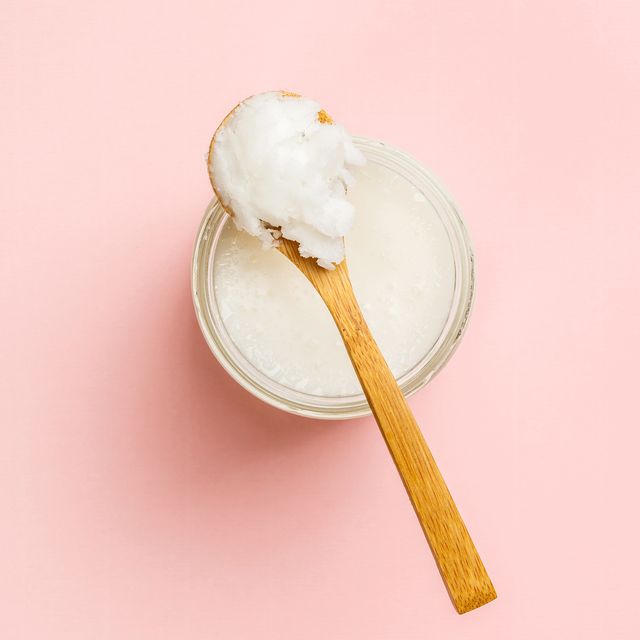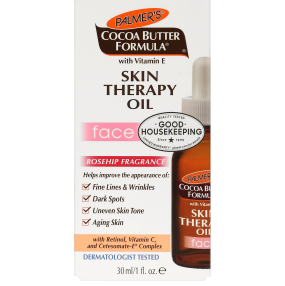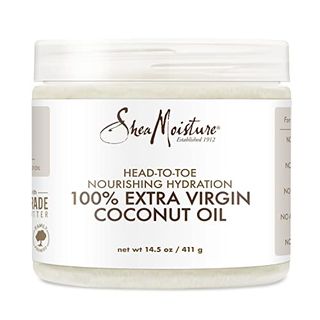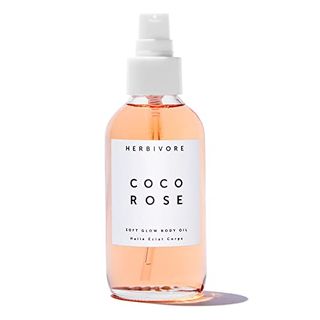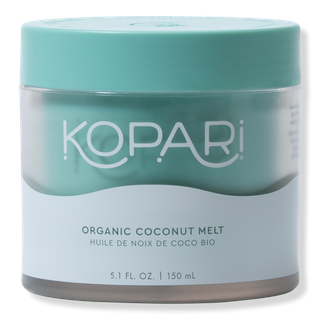Natalia Klenova / EyeEmGetty Images
You may have heard that you can use coconut oil on hair to strengthen and condition your strands, but what about on your skin? Turns out, coconut oil can be a great skin moisturizer — but with some caveats.
“While coconut oil has great moisturizing properties, it’s not ideal for all skin types,” says Michelle Henry, M.D., founder of Skin & Aesthetic Surgery in Manhattan. But before we get into who should use coconut oil on their skin and who should steer clear, let’s talk about the basics of the ingredient itself.
First things first: what is coconut oil?
“Coconut oil, also known as cocos nucifera oil, is an edible oil that is made from the white lining, or kernel, of matured coconuts that has a high saturated fat content,” says Dr. Henry. Virgin coconut oil is slightly different from refined coconut oil, as it’s made by cold pressing fresh coconut meat, which is thought to retain more of the nutrients from the fruit.
“Its melting point is 78°F so on a warm day you might see your jar of typically solid coconut oil liquify, but it will re-solidify below 78°F,” explains Good Housekeeping Institute Beauty Lab Chemist Danusia Wnek.
The soothing oil can be used on the skin and for certain skin and scalp conditions. “It is also somewhat antiseptic and useful for conditions like eczema,” says Dr. Henry.
What are the main benefits of coconut oil for skin?
Some of the top beauty benefits of coconut oil include:
- It hydrates skin. “Coconut oil acts as an emollient, which aides in the moisturization of skin,” Wnek says.
- Locks in moisture. “A 2014 clinical study showed that pediatric patients with mild to moderate atopic dermatitis who used virgin coconut oil for eight weeks showed improvement in decreased transepidermal water loss and increased skin hydration,” shares Wnek. “It also showed that none of the pediatric subjects developed adverse reactions.”
- It soothes inflammation. “It has anti-inflammatory properties that help to reduce skin irritation,” Dr. Henry says.
- It has antimicrobial properties. “The rich fatty acid content found in coconut oil can help stop the growth of certain microorganisms on the skin,” Dr. Henry says.
- It protects from certain infections. “[This is] thanks to the saturated fats,” explains Dr. Henry.
Is coconut oil good for your skin?
That really depends on your skin type. While coconut oil does provide major moisturizing and anti-inflammatory benefits, not everyone will benefit from using it. “Coconut oil is highly comedogenic, which means it can clog your pores and increase the appearance of blackheads, whiteheads and acne,” Dr. Henry says. So if you have oily or acne-prone skin, it’s not the best choice for your face. “However, it is usually okay to use on the body,” says Dr. Henry.
So, what skin types is coconut oil best for?
“As an oil-based ingredient, coconut oil is best used on dry skin types that require extra boosts of hydration,” says Dr. Henry. And in case we haven’t stressed this enough, Wnek adds that “while coconut oil might be safe to use as a cosmetic, it can be comedogenic and clog pores, so those with oily or acne prone skin should avoid this ingredient.”
Can coconut oil be used daily on skin?
Due to its highly comedogenic nature, Dr. Henry doesn’t recommend applying coconut oil every day and night. “You need to find out the right usage for your skin,” she says, “and to do that it’s best to start slow, like once or twice a week, and increase as your skin allows.”
Dr. Henry recommends using a dime size amount of oil, rubbing it between your fingers until it becomes liquid in texture and gently applying it on the face and neck in light, circular motions.
Are there any side effects of using coconut oil on skin?
In terms of safety concerns, the short answer is no. “The Cosmetic Ingredient Review, which reviews the safety of cosmetic ingredients, has stated that coconut oil is safe to use as a cosmetic ingredient,” says Wnek. “Additionally, a 2006 double-blind randomized patch test study published in Dermatitis, the American Contact Society journal, showed that coconut oil did not cause negative skin reactions and therefore wasn’t an allergen,” she adds.
However, when it comes to potential reactions based on specific skin types, especially acne-prone skin, Dr. Henry shares that “coconut oil can cause clogged pores, the appearance of blackheads, whiteheads, acne spots and irritation.” It also has a thicker texture, which can create an overall waxy-oily finish on the skin.
The best coconut oil products for skin
If you have dry skin and you’re looking to reap the moisturizing and anti-inflammatory benefits of coconut oil, try these products recommended by our GH Institute experts and dermatologists.
This content is created and maintained by a third party, and imported onto this page to help users provide their email addresses. You may be able to find more information about this and similar content at piano.io

